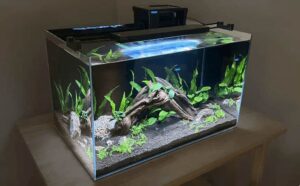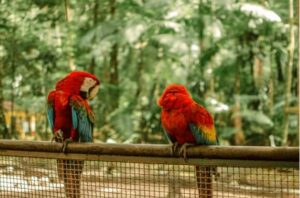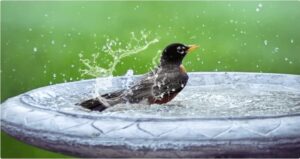Birds are fascinating creatures, each uniquely adapted to their environment. Some birds soar through the skies, while others thrive on land or in aquatic habitats. But what exactly is a “fortunate swimming bird”? This article delves into the characteristics, adaptations, and species of birds that are both fortunate and adept swimmers, highlighting what makes them special and how they contribute to their ecosystems.
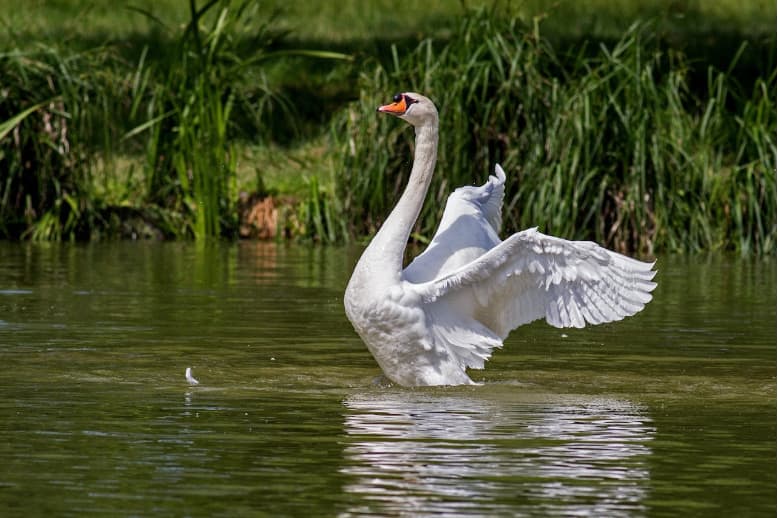
Table of Contents
- What Defines a Fortunate Swimming Bird?
- Unique Adaptations for a Fortunate Swimming Bird
- Top Fortunate Swimming Birds
- Penguins
- Swans
- Ducks
- Puffins
- Cormorants
- Grebes
- Loons
- Why Are These Birds Considered Fortunate?
- The Role of a Fortunate Swimming Bird in Ecosystems
- Conservation of Fortunate Swimming Birds
- How to Observe and Appreciate Swimming Birds
- Conclusion
What Defines a Fortunate Swimming Bird?
A fortunate swimming bird is a species that possesses natural adaptations for efficient swimming while also enjoying advantages in its environment. These birds are typically found in freshwater lakes, rivers, or oceans, where they use their specialized body structures to navigate and thrive. Their “fortunate” nature may be attributed to their survival skills, adaptability, and unique ecological roles.
Physical Characteristics
Fortunate swimming birds often share key physical traits such as:
- Webbed feet for effective propulsion in water.
- Dense plumage to keep them insulated from cold water.
- Streamlined bodies for reducing water resistance.
- Buoyant bones that help them float effortlessly.
Behavioral Traits
Many of these birds exhibit behaviors that contribute to their success in aquatic habitats, such as:
- Diving for food – Some species, like cormorants and loons, dive deep underwater to catch fish.
- Floating effortlessly – Ducks and swans remain buoyant while foraging on the water’s surface.
- Migratory patterns – Many species travel vast distances to find optimal breeding and feeding grounds.
Unique Adaptations for a Fortunate Swimming Bird
A fortunate swimming bird possesses several adaptations that enable it to move seamlessly through water:
- Webbed Feet – Aiding in propulsion through water.
- Dense Plumage – Waterproof feathers that keep them dry and warm.
- Streamlined Bodies – Reducing drag while swimming.
- Specialized Beaks – Designed for catching fish or filtering food from the water.
- Strong Musculature – Enhancing diving and paddling capabilities.
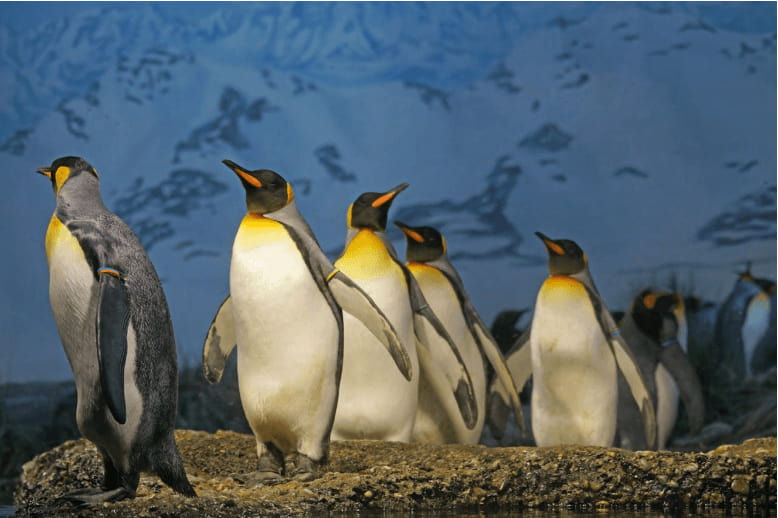
Top Fortunate Swimming Birds
1. Penguins
Penguins are flightless seabirds with remarkable swimming abilities. Their wings have evolved into flippers, allowing them to “fly” underwater with incredible agility. They primarily feed on fish and krill and are well-adapted to cold environments.
2. Swans
Swans are elegant waterfowl known for their long necks and graceful movements. They use their powerful webbed feet to glide smoothly across water surfaces. Swans are often seen as symbols of beauty and good fortune.
3. Ducks
Ducks are highly versatile birds found in freshwater and marine environments. With their waterproof feathers and webbed feet, they are excellent swimmers and divers. Some species, like the mallard, are considered particularly fortunate due to their adaptability and widespread presence.
4. Puffins
Puffins are small seabirds with bright, colorful beaks. They are excellent swimmers, using their wings to propel themselves underwater while hunting fish. Their ability to thrive in harsh marine environments makes them unique and resilient.
5. Cormorants
Cormorants are skilled diving birds that catch fish underwater. Unlike most swimming birds, their feathers are not fully waterproof, allowing them to sink more easily for deeper dives. They are often seen drying their wings after a dive, a distinctive behavior in the avian world.
6. Grebes
Grebes are expert divers with lobed feet instead of fully webbed feet, allowing them to navigate underwater efficiently. They can dive to significant depths to catch fish and invertebrates, making them highly specialized swimmers.
7. Loons
Loons are known for their haunting calls and exceptional diving skills. They have solid bones that help them sink below the surface and swim swiftly after fish. Their streamlined bodies make them some of the most efficient swimmers among birds.
Why Are These Birds Considered Fortunate?
The “fortunate” aspect of a fortunate swimming bird comes from its ability to thrive in water-based environments, its natural defenses against predators, and its evolutionary success. Many of these birds are also revered in different cultures as symbols of luck, resilience, and beauty.
The Role of a Fortunate Swimming Bird in Ecosystems
A fortunate swimming bird plays a crucial role in maintaining ecological balance. It contributes to:
- Controlling Fish Populations – By preying on fish, it helps regulate aquatic ecosystems.
- Seed Dispersal – Some birds, like ducks, help spread plant seeds, promoting biodiversity.
- Nutrient Recycling – Their droppings enrich water bodies, supporting marine and freshwater life.
Conservation of Fortunate Swimming Birds
While many fortunate swimming birds are thriving, some face threats from habitat destruction, pollution, and climate change. Conservation efforts focus on:
- Protecting Wetlands and Coastal Areas
- Reducing Pollution and Plastic Waste
- Supporting Bird Sanctuaries and Protected Areas
- Promoting Sustainable Fishing Practices
How to Observe and Appreciate Swimming Birds
If you’re interested in observing these incredible birds in their natural habitat, consider the following tips:
- Visit National Parks and Wetlands – Many reserves are home to diverse aquatic bird species.
- Use Binoculars for Better Viewing – Some species prefer staying at a distance from humans.
- Be Respectful of Their Environment – Avoid disturbing nesting or feeding birds.
- Keep a Birdwatching Journal – Document your sightings and behaviors for a richer experience.
A fortunate swimming bird is more than just an aquatic avian; it is a symbol of adaptability, survival, and ecological importance. From penguins in the Antarctic to ducks in local ponds, these birds exhibit incredible features that make them truly special. By understanding and protecting them, we ensure their continued presence in our ecosystems for generations to come.
Why Choose Our Website?
At Home Pets Advisor, we provide well-researched and engaging content on various animals, from pets to wildlife. Our goal is to educate and inspire readers with high-quality, informative articles.
Stay tuned for more fascinating insights into the animal kingdom!









